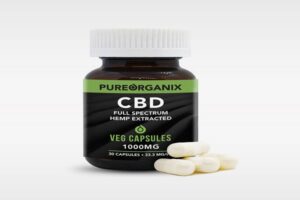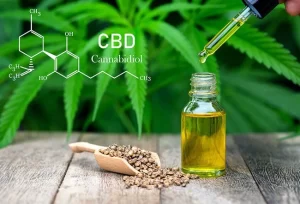THC: How It Affects The Body?
Tetrahydrocannabinol (THC) is the key psychoactive compound found in cannabis plants that produces a high feeling. Different other names for THC are trans-delta9-THC or delta-9-THC.
Many people misunderstand THC as the “non-medical” part of cannabis. It’s one of the most widely known of the 150 cannabinoids found in cannabis and activates CB1 cannabinoid receptors in the brain. It also turns on CB2 receptors in the immune system, making it an effective anti-inflammatory that can help relieve both chronic and intense pain (like muscular cramps). It’s also been shown to help reduce symptoms of looseness of the bowels and nausea, function as a craving stimulant and alleviate an overactive bladder.
For more information about THC, read our THC Blog– thc420hemp.com
How Does THC Affect the Body?
The human body produces many hormonal agents and chemicals that contribute to our sensations of enjoyment, happiness, and bliss. One of those chemicals, anandamide, is structurally similar to THC. The psychedelic effects of THC are thought to be because of the activation of CB1 receptors and inhibition of the enzyme fatty acid amide hydrolase (FAAH), which boosts the amount of anandamide available in the body.
THC also boosts cells in the mind to release dopamine. Dopamine is viewed as the major hormone connected with satisfaction; however, this is not completely precise. Rather, dopamine contributes to motivation and reward-seeking actions, as opposed to pleasure directly. This mix influences memory, joy, activities, thinking, concentration, synchronization, and sensory and time understanding.
Kinds of THC
You may experience the benefits of THC through many usage methods. Here are some various ways you can consume THC:
- Smoking
- Vaping
- Topicals
- Edibles
- Sublingual (A.K.A. underneath the tongue)
There are advantages to each of these THC intake methods. Edibles may deliver the most powerful effects; however, the start of these effects is slower than with other methods like smoking. Applying THC topically means giving up the psychedelic experience that the cannabinoid deals with. Consult a doctor to identify which THC usage approach (and dosage) is right for you.
How Does the Body Process THC?
THC travels on a complex trip via the body. Initially, you consume THC; after that the cannabinoid enters your bloodstream. From there, the body further metabolizes THC as the bloodstream sends out the substance into different cells. The process of metabolizing is the way your body transforms and transforms chemical forms before ultimately excreting them.
For instance, if you consume cannabis by mouth, THC will go into the intestinal tracts, travel through the liver, and ultimately be metabolized by the liver. This procedure is slower than if you vape THC, as the effects of THC can begin almost immediately in the body and brain. Rapid heart rate and mood changes are hints that your body is refining THC.














